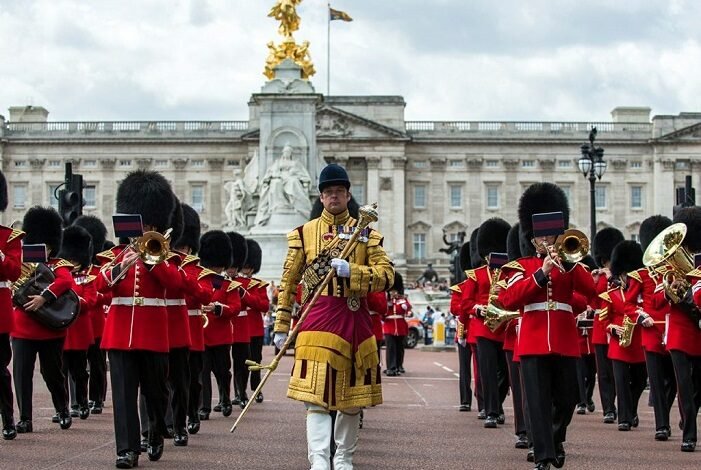Army Eanks Revolutionary War Non Commissioned Drum Major: Story behind it?

The Revolutionary War, a pivotal period in American history, saw the formation of the Continental Army and the establishment of numerous military roles and ranks. Among these roles, the position of the non-commissioned drum major stands out for its unique blend of musical leadership and military responsibility. This detailed exploration provides a comprehensive look at the drum major’s role, responsibilities, and significance during this tumultuous period.
The Evolution of the Drum Major Role
Historical Background
The position of the drum major has its roots in European military traditions, where it was established long before the American Revolutionary War. In European armies, the drum major was a key figure responsible for leading the drummers and fifers, essential for communication and morale. When the Continental Army was formed, this tradition was carried over and adapted to the needs of the American forces.
Introduction to the Continental Army
The Continental Army, established by the Second Continental Congress in 1775, required an organized and disciplined structure to effectively challenge the British forces. Music played a critical role in this structure, providing a means of communication and a morale-boosting presence. The drum major emerged as a crucial non-commissioned officer responsible for these musical functions.
Key Responsibilities of the Drum Major
Leading the Regimental Band
The drum major’s most visible role was leading the regimental band of drummers and fifers. This group was responsible for playing music that conveyed commands and maintained the rhythm of the troops. The drum major conducted these performances, ensuring that the music was in sync with the needs of the army. This required not only musical skill but also the ability to lead and inspire the band.
Coordinating Military Signals
In battle and during marches, the drum major played a vital role in coordinating musical signals. Different drum patterns and fife tunes were used to relay commands such as “advance,” “retreat,” “halt,” and “reform.” The drum major had to be adept at both performing and interpreting these signals, as clear and accurate communication was crucial for effective military operations.
Training and Supervising Musicians
The drum major was responsible for the training and supervision of the drummers and fifers. This included teaching them the necessary techniques and ensuring they performed their duties correctly. The drum major had to maintain discipline within the band, addressing any issues that arose and ensuring that all members were proficient in their roles.
Maintaining Morale and Order
Music played a significant role in maintaining the morale of the troops. The drum major’s leadership helped boost the spirits of the soldiers, providing them with a sense of rhythm and order during long marches and harsh conditions. The presence of a well-organized and skilled band contributed to the overall cohesion and effectiveness of the regiment.
The Structure and Status of the Drum Major
Non-Commissioned Rank
As a non-commissioned officer, the drum major did not hold a formal commission from higher authority. Instead, this position was filled based on merit and experience. Non-commissioned officers, including the drum major, played a crucial role in the daily management of troops, providing leadership and maintaining discipline.
Comparison with Other Non-Commissioned Ranks
Sergeant Major
The sergeant major was a senior non-commissioned rank, responsible for overseeing the sergeants and acting as a key advisor to the regiment’s officers. While the sergeant major focused on administrative and disciplinary aspects, the drum major’s role was centered around musical leadership and communication.
Color Sergeant
The color sergeant was responsible for carrying the regimental colors and ensuring their proper display during battles and ceremonies. Like the drum major, the color sergeant held a non-commissioned rank and played a significant role in maintaining the regiment’s identity and morale.
The Significance of the Drum Major in the Revolutionary War
Enhancing Communication
In the absence of modern communication technologies, music was an essential tool for relaying commands and coordinating movements. The drum major’s role in leading the band and coordinating signals was vital for maintaining effective communication on the battlefield and during drills.
Boosting Morale
The presence of a well-organized band, led by a skilled drum major, had a significant impact on the morale of the troops. Music provided a sense of rhythm and routine, helping soldiers cope with the stresses of war. The drum major’s ability to lead and inspire the band contributed to the overall morale and effectiveness of the regiment.
Maintaining Discipline
The drum major’s responsibilities extended beyond music. By training and supervising the drummers and fifers, the drum major played a role in maintaining discipline within the band. This discipline was crucial for ensuring that the musical signals were performed accurately and that the band operated smoothly.
Challenges Faced by Drum Majors
Evolving Military Needs
As the Continental Army evolved, so did the needs of the drum major. The role required adaptability, as the drum major had to stay current with changes in military tactics and communication methods. This included learning new musical patterns and adjusting to evolving battlefield conditions.
Maintaining Musical Standards
The drum major was responsible for upholding high musical standards, which could be challenging given the pressures of war. Ensuring that the band performed consistently well required skillful leadership and dedication.
Know more about: Travel Agent Who Take Commission
Balancing Leadership and Musical Duties
Balancing the leadership of the band with the technical demands of the musical role was a challenge for drum majors. They had to be proficient musicians while also managing the administrative and disciplinary aspects of their position.
Conclusion
The non-commissioned drum major played a crucial role in the Continental Army during the Revolutionary War. With responsibilities ranging from leading the regimental band to coordinating military signals and maintaining discipline, the drum major was integral to the army’s operations. Understanding the significance of this role provides valuable insights into the complexities of military life during this pivotal period in American history. The drum major’s contributions to communication, morale, and discipline underscore the importance of every position within the army, highlighting the vital role that music and leadership played in achieving military success.





